| Srl | Item |
| 1 |
ID:
170721
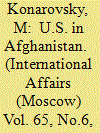

|
|
|
| 2 |
ID:
137493
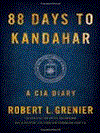

|
|
|
|
|
| Publication |
New York, Simon and Schuster, 2015.
|
| Description |
xix, 443p.Hbk.
|
| Standard Number |
9781476712079
|
|
|
|
|
|
|
|
|
|
|
|
Copies: C:1/I:0,R:0,Q:0
Circulation
| Accession# | Call# | Current Location | Status | Policy | Location |
| 058169 | 958.104/GRE 058169 | Main | On Shelf | General | |
|
|
|
|
| 3 |
ID:
056367
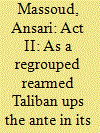

|
|
|
| 4 |
ID:
084338


|
|
|
|
|
| Publication |
2008.
|
| Summary/Abstract |
Can Kabul be saved? More troops are on the way, but a one-size-fits-all surge is not enough. We also need to change our tactics. If Washington wants to prevail in Afghanistan, we need to learn from successes in Iraq, and focus on fighting a war-not building a nation.
|
|
|
|
|
|
|
|
|
|
|
|
|
|
|
|
| 5 |
ID:
023068
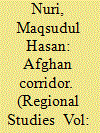

|
|
|
|
|
| Publication |
Autumn 2002.
|
| Description |
28-47
|
|
|
|
|
|
|
|
|
|
|
|
|
|
|
|
| 6 |
ID:
020340
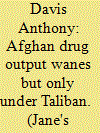

|
|
|
|
|
| Publication |
Oct 2001.
|
| Description |
14-17
|
|
|
|
|
|
|
|
|
|
|
|
|
|
|
|
| 7 |
ID:
105543
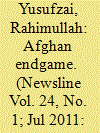

|
|
|
| 8 |
ID:
180306
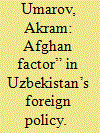

|
|
|
|
|
| Summary/Abstract |
This article examines the historical development of Uzbekistan's stance on the situation in Afghanistan, outlines its main stages, achievements and challenges, investigates the major initiatives of Tashkent on solving conflict in the neighbouring country before and after 2016, the major priorities of its contemporary foreign policy towards the Afghan conflict, and the Uzbek government's expectations from the upcoming developments in Afghanistan.
|
|
|
|
|
|
|
|
|
|
|
|
|
|
|
|
| 9 |
ID:
020678
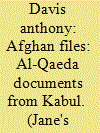

|
|
|
|
|
| Publication |
Feb 2002.
|
| Description |
14-19
|
|
|
|
|
|
|
|
|
|
|
|
|
|
|
|
| 10 |
ID:
106065


|
|
|
| 11 |
ID:
167749
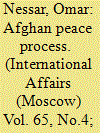

|
|
|
|
|
| Summary/Abstract |
LATE IN 2018 and early in 2019, Moscow hosted two very important events related to peace settlement of the Afghan conflict which had been going on for over 30 years. In November 2018, the Moscow Format of consultations on Afghanistan brought together delegations of Afghanistan and the Taliban1; in February 2019, Moscow hosted an inter-Afghan dialogue between representatives of the legitimate political forces and the Taliban.
|
|
|
|
|
|
|
|
|
|
|
|
|
|
|
|
| 12 |
ID:
104448
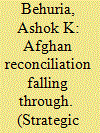

|
|
|
| 13 |
ID:
128133


|
|
|
|
|
| Publication |
2013.
|
| Summary/Abstract |
On June 18 as Afghan president Hamid Karzai and the high peace council prepared to start talks independently with the Taliban in Doha, Emirate of Qatar, the United States after playing hide and seek and holding undisclosed intermittent talks in Doha for more than a year announced that it will be opening direct talks with Taliban leaders within days. At the time of writing, these talks have not begun, but a US delegation has arrived in Doha and they expect to begin talking soon
|
|
|
|
|
|
|
|
|
|
|
|
|
|
|
|
| 14 |
ID:
169230
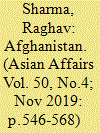

|
|
|
|
|
| Summary/Abstract |
This article discerns the shifts in China's engagement with its Western neighbour, Afghanistan. Beijing's approach has gradually shifted from dis-interest to a careful re-calibration of strategy indicating Afghanistan's growing eminence in its strategic calculus. This transposition – dating back to the 1980's – it is argued has been accentuated as the ‘West’ weans itself away from the Afghan theatre. This article demonstrates that Beijing's chequered history of engagement with Kabul has been historically underpinned by its engagement with a plethora of actors identified with ‘political Islam’ who in turn are patronized by its allies in Rawalpindi. Its deepening footprint in contemporary Afghanistan while continuing to be coloured by the prism of Rawalpindi, is informed by a growing sense of unease regarding the perceived adverse imprint that developments across China's Western borders are likely to leave on its domestic security and growing economic interests in the region.
|
|
|
|
|
|
|
|
|
|
|
|
|
|
|
|
| 15 |
ID:
138956
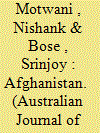

|
|
|
|
|
| Summary/Abstract |
The ongoing international military withdrawal from Afghanistan has set the stage for energising the activities of Afghanistan’s external stakeholders to re-evaluate their activities. The possible return of the Taliban in some form could compel Afghanistan’s current external partners—Iran, India and Russia—to turn into limited spoilers. The absence of an international guarantor in Afghanistan from December 2014 is likely to encourage Pakistan—a greedy spoiler—to intensify its meddling as a means to reposition the Taliban—a total spoiler—at the helm of Afghan affairs. The combination of limited, greedy and total spoilers threatens to undermine security and state-building processes.
|
|
|
|
|
|
|
|
|
|
|
|
|
|
|
|
| 16 |
ID:
107147
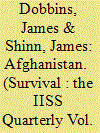

|
|
|
|
|
| Publication |
2011.
|
| Summary/Abstract |
The overarching Western objective in Afghanistan should be to prevent that country from becoming not just a haven for transnational terrorists, but a terrorist ally as well. That was the situation prior to 9/11 and it would be so again if the Taliban returned to power with al-Qaeda backing. NATO can prevent this indefinitely as long as it is willing to commit significant military and economic resources to a counter-insurgency effort. It cannot eliminate the threat, however, as long as the Afghan insurgents enjoy sanctuary in and support from Pakistan. Alternatively, this objective could be achieved if the Taliban could be persuaded to cut its ties to al-Qaeda and end its insurgency in exchange for some role in Afghan governance short of total control.
|
|
|
|
|
|
|
|
|
|
|
|
|
|
|
|
| 17 |
ID:
108407
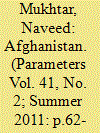

|
|
|
| 18 |
ID:
113598
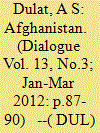

|
|
|
| 19 |
ID:
118719


|
|
|
| 20 |
ID:
122396
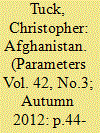

|
|
|
|
|
| Publication |
2012.
|
| Summary/Abstract |
Why has ending the war in Afghanistan proved to be so problematic? In
theory, the decision to end a war should be relatively straightforward.
One or more of the belligerents determine whether or not it is worth continuing the conflict and, as long as at least one of them decides that continuing to
fight is not worth the investment, peace is offered and the conflict terminates.
Clausewitz encapsulates this rational, commonsense approach to the ending
of war when he asserts: "Once the expenditure of effort exceeds the value of
the political object, the object must be renounced and peace must follow."1
By
this logic, and in the context of Afghanistan, the strategic dilemma associated
with how and when to end the war could have been avoided by engaging in a
rational cost-benefit analysis: how much has the war cost and what is the value
of the objectives we were pursuing? Once the former exceeded the latter, then
the Coalition should have struck a deal with the Taliban and left Afghanistan.
Instinctively, of course, we know that the decisions involved in ending a war
cannot be as simple as this rational cost-benefit analysis. But, why is that so?
|
|
|
|
|
|
|
|
|
|
|
|
|
|
|
|